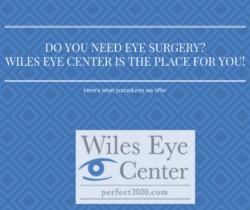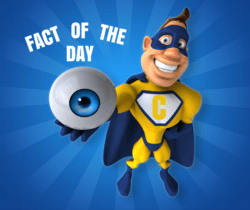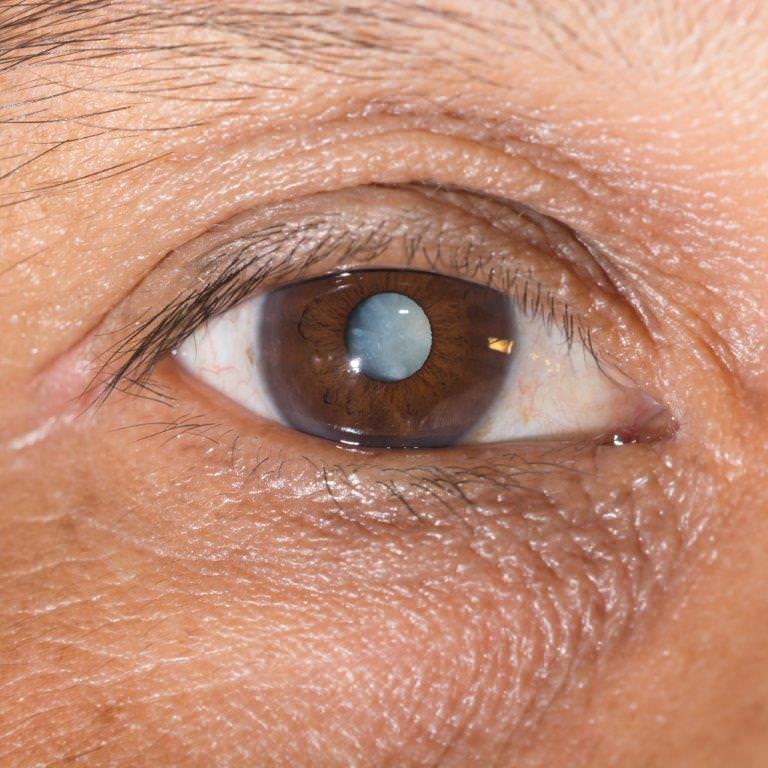
We’ve all heard that we should be eating a diet rich in fruits and vegetables. We’re learning that the traditional “Standard American Diet” is actually very poor diet. We hear time and time again that we should be eating better for our health, and that eating healthier can reduce the risk for many diseases, but did you know that your diet can directly affect your vision as well?
September is Fruits & Veggies-More Matters Month, so we have decided to spend this month educating our patients about the importance of eating a nutrient-rich diet. With more than 25 million Americans over the age of 18 suffering from some type of vision loss, improving our diet is one very simple step in preventing further vision loss.
The most obvious way that diet can affect vision is controlling weight and insulin levels. High blood glucose levels have been directly linked to damaging the blood vessels within the eye, as in Diabetic Retinopathy. When a person is overweight, the risk of developing type 2 diabetes significantly increases. In addition to an increased risk of diabetes, obesity also comes with multiple different systemic conditions, which can lead to other eye diseases, such as glaucoma.
According to the National Eye Institute, we should be eating a diet rich in dark, leafy greens, such as spinach and kale. Other foods that provide our bodies-and eyes- with essential nutrients include: fish rich in Omega-3 Acids such as tuna or salmon, fruit filled with antioxidants such as strawberries or blueberries, eggs, sweet potatoes, and carrots.
Each type of food provides our bodies with different antioxidants, and essential vitamins and minerals to maintain healthy eyes. For example, eggs, kale, spinach, brussel sprouts, zucchini, corn, and romaine lettuce provide Lutein and Zeaxanthin, which can aid in preventing cataracts and Age-Related Macular Degeneration. Other essential vitamins for eye health include Vitamin C (found in raspberries, strawberries, kiwi, bell pepper, spinach tomato and broccoli), Vitamin E (found in vegetable oils, spinach, kale, avocado, sweet potatoes, and whole grains), Vitamin A and Carotene (found in carrots, sweet potatoes, eggs, squash, and dark leafy greens), and lastly, Zinc (found in red meat, seafood, dried beans, nuts, and whole grains).
It seems like such a simple step in protecting our eyes, but did you know that 90% of all adults and children fall short of getting enough fruits and vegetables into their diet? According to Dietary Guidelines for Americans, we should be filling half of our plate up with fruits and vegetables at every meal. A common reason for falling short on getting enough fruits and vegetables into our diet is that we simply don’t enjoy them. Even if you don’t like fruits and vegetables, there are ways to essentially “sneak” them into your diet.
One easy tip for getting in enough fruits and vegetables into your daily diet is adding them to things you already enjoy eating. For instance, you can add fresh or frozen fruit to your morning oatmeal, or yogurt. You can add lettuce, tomato, or cucumber onto your sandwiches or cheese burgers. Eating healthy isn’t just salads and lean protein, so don’t be afraid to try new things. Another tip for getting in enough fruits and vegetables is to try new produce. Every few years, our taste buds and preferences for taste and texture change. So, something you didn’t like when you were 20 may now taste good in your 30s. In addition to just trying new produce, you can try preparing your produce differently. For example, if you don’t like raw broccoli, try seasoning it and cooking it in the oven with a light amount of fat such as olive oil. Another easy tip for eating more fruits and vegetables is to snack on fresh produce, rather than a prepackaged snack.
These tips will not only help you eat more fruits and vegetables throughout the day, but it will help control your caloric intake. If you are a particularly picky eater, and just don’t like vegetables, try drinking a smoothie in the mornings. Making a smoothie can help you get a variety of fruits and vegetables in just one sitting. You can add vegetables that don’t have a strong taste, such as spinach or carrots to your smoothie and incorporate as many vegetables as you can. Lastly, another great option if you don’t enjoy eating vegetables, is to make juice from them. You could add some fruit to make the juice taste sweet, rather than bitter. This is another easy way to incorporate a concentrated variety of fruits and vegetables in just one sitting.
However you choose to increase your daily intake of fruits and vegetables, the important thing is taking care of our bodies and our overall health. If you have any questions about the health of your eyes, or would like to make an appointment, please call us. The number to our Kansas City location is 816-455-2020. Our St. Joseph office location can be reached by calling 816-279-7015.
Sources:
https://www.health.ny.gov/publications/0911/
https://nei.nih.gov/healthyeyes/eyehealthtips
The post September is Fruits & Veggies- More Matters Month! appeared first on .
from https://perfect2020.com/september-is-fruits-veggies-more-matters-month/
via https://perfect2020.com



 The cataract surgeons at
The cataract surgeons at